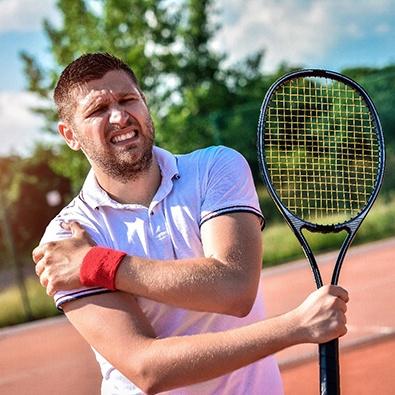
Fax: (860) 430-9693
Glastonbury, CT 06033

The shoulder is one of the most complicated and flexible joints, and while this gives it an impressive range of motion, it also means there are more possibilities for injury. One of the most common is a rotator cuff injury, which involves one or more of the four main muscles that stabilize the bones that make up the shoulder. What are the primary causes of rotator cuff injuries? By knowing them, can you more easily avoid this type of problem? What should you do if you think your rotator cuff is already compromised?
Dr. Paul Tortland of the New England Stem Cell Institute has literally helped thousands of patients with this problem, so he can provide the answers you need and offer possible solutions to get you moving and feeling like normal again.

Needless to say, we use our shoulders all the time for a wide variety of activities. This means there are several situations that can result in the rotator cuff being injured, like trying to break a fall with an outstretched arm or falling directly onto the shoulder. Accidents aren’t the only risk, as trying to lift a heavy weight or experiencing a large amount of force or strain on the shoulder (like something being violently pulled out of your hands) can create an issue as well.
An injury to the rotator cuff can happen during a single traumatic event, but for some, the damage accumulates over a long period of time. Playing a sport that requires a lot of throwing and catching (such as baseball or football) or working a job that involves raising and lowering the arm several times a day (roofing, carpentry, painting) can cause small tears to develop in the rotator cuff muscles. As the days, weeks, and months go by, these tears can grow larger and make someone more susceptible to serious injury.

For any type of muscle-related injury, the best thing a person can do initially is rest, use a cold compress to dull the pain, and then apply heat to soothe the area. Taking an OTC medication can help as well. However, if these conservative measures don’t work, and symptoms seem to be getting worse, then it’s time to visit a doctor.

Hopefully, by knowing what causes rotator cuff injuries, you can avoid them in the future. But, if you suspect that you’re already dealing with one, don’t wait to get the treatment you need and start on the road to recovery. To learn more about your options and schedule a consultation at the New England Stem Cell Institute, contact our Glastonbury office today.